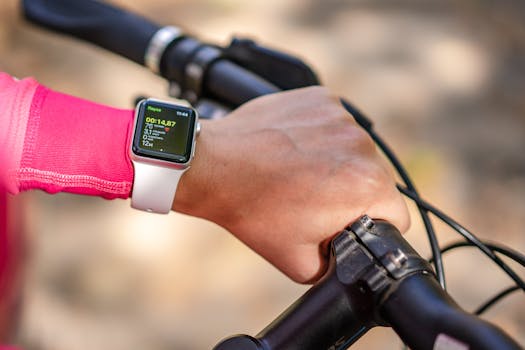
Table of Contents
- 1. Smart Home Devices
- 2. Wearable Technology
- 3. Health and Wellness Apps
- 4. Productivity Tools
- 5. Smart Transportation
1. Smart Home Devices
As technology evolves, smart home devices have emerged as a significant trend, offering convenience and efficiency. These devices, ranging from smart speakers to smart thermostats, allow homeowners to control their environment with ease. Imagine adjusting your home’s lighting, temperature, and even security systems with just your voice or a simple tap on your smartphone.
Smart home technology not only improves comfort but also enhances energy efficiency. For example, smart thermostats learn your schedule and adjust heating and cooling accordingly, resulting in lower energy bills. Security cameras and smart locks provide peace of mind by allowing homeowners to monitor their property remotely.
The integration of smart home devices with AI technology further enhances their functionality. Voice assistants like Amazon Alexa or Google Assistant can control your devices, answer queries, and even manage your daily tasks. As smart home technology continues to evolve, it promises to make daily living more convenient and efficient than ever before.
2. Wearable Technology

Popular wearable devices, such as the Apple Watch and Fitbit, come equipped with features that track workouts, provide reminders to move, and even alert users about potential health issues. The integration of GPS and heart rate monitoring capabilities allows users to optimize their workouts and set personal fitness goals.
Moreover, wearable technology is not limited to fitness. Many devices now offer features like stress monitoring and guided breathing exercises, promoting mental well-being. As technology advances, we can expect even more innovative features that enhance our understanding of personal health.
3. Health and Wellness Apps

These applications provide users with tools to manage their diet, track their exercise, and even schedule workouts. Many also include community features that allow users to connect with others, share progress, and motivate one another. This social aspect can significantly enhance commitment to personal health goals.
Furthermore, telehealth apps have become increasingly popular, allowing users to consult with medical professionals without leaving their homes. This convenience not only saves time but also improves access to healthcare services.
4. Productivity Tools
In today’s fast-paced world, productivity tools like Trello, Slack, and Notion have become essential for both personal and professional organization. These tools help individuals manage their tasks, collaborate with teams, and streamline their workflows.
With the rise of remote work, productivity tools have become more important than ever. They enable effective communication and task management, ensuring that teams can work together seamlessly, regardless of their physical location. Users can create to-do lists, set deadlines, and track progress, all in one place.
Additionally, automation tools like Zapier can save time by connecting different applications and automating repetitive tasks. By integrating these technologies into daily routines, individuals can enhance their productivity and focus on what truly matters.
5. Smart Transportation

Ride-sharing services like Uber and Lyft have changed the way we think about personal transportation, providing convenient options for getting around without the need for personal vehicles. Electric scooters and bikes offer an eco-friendly alternative for short trips, promoting a healthier lifestyle.
Moreover, advancements in public transportation, such as real-time tracking apps and contactless payment systems, enhance the commuting experience. As smart transportation continues to evolve, it promises to make travel easier, faster, and more sustainable.




